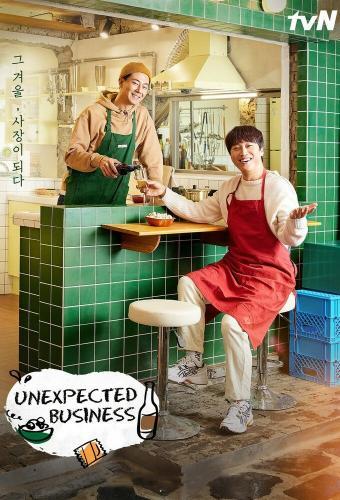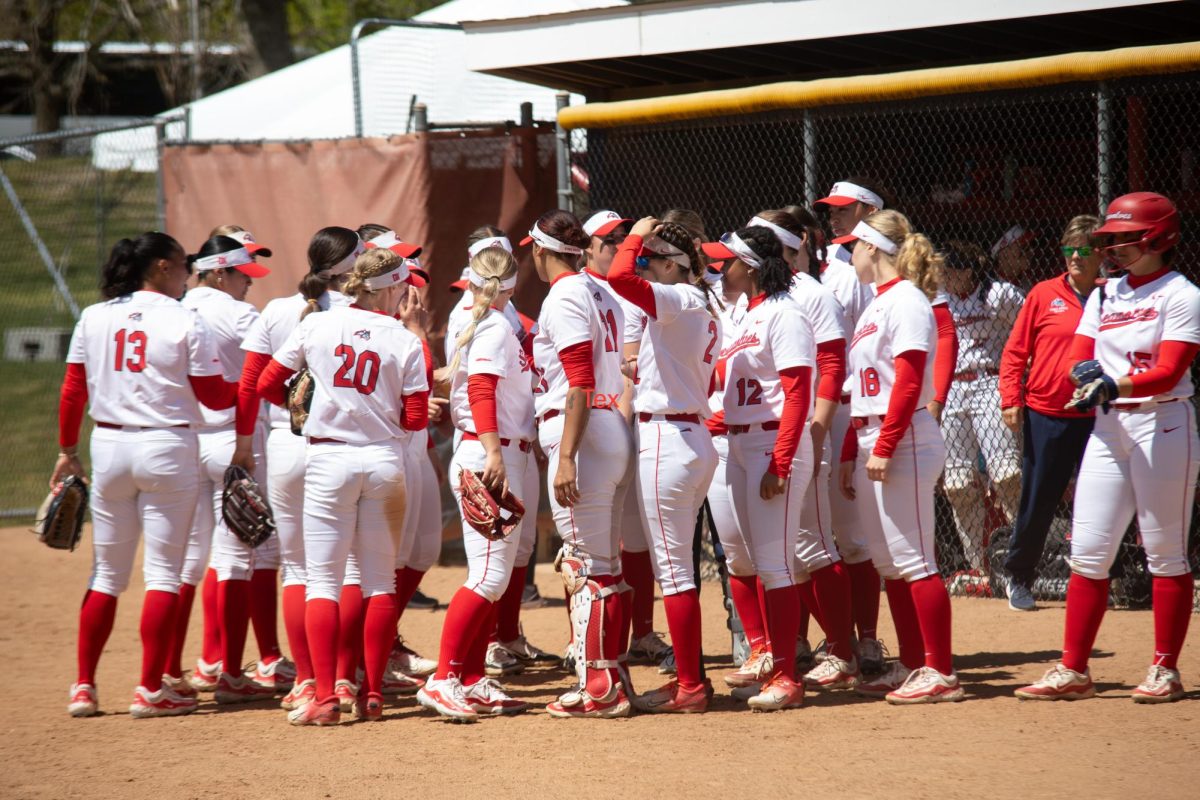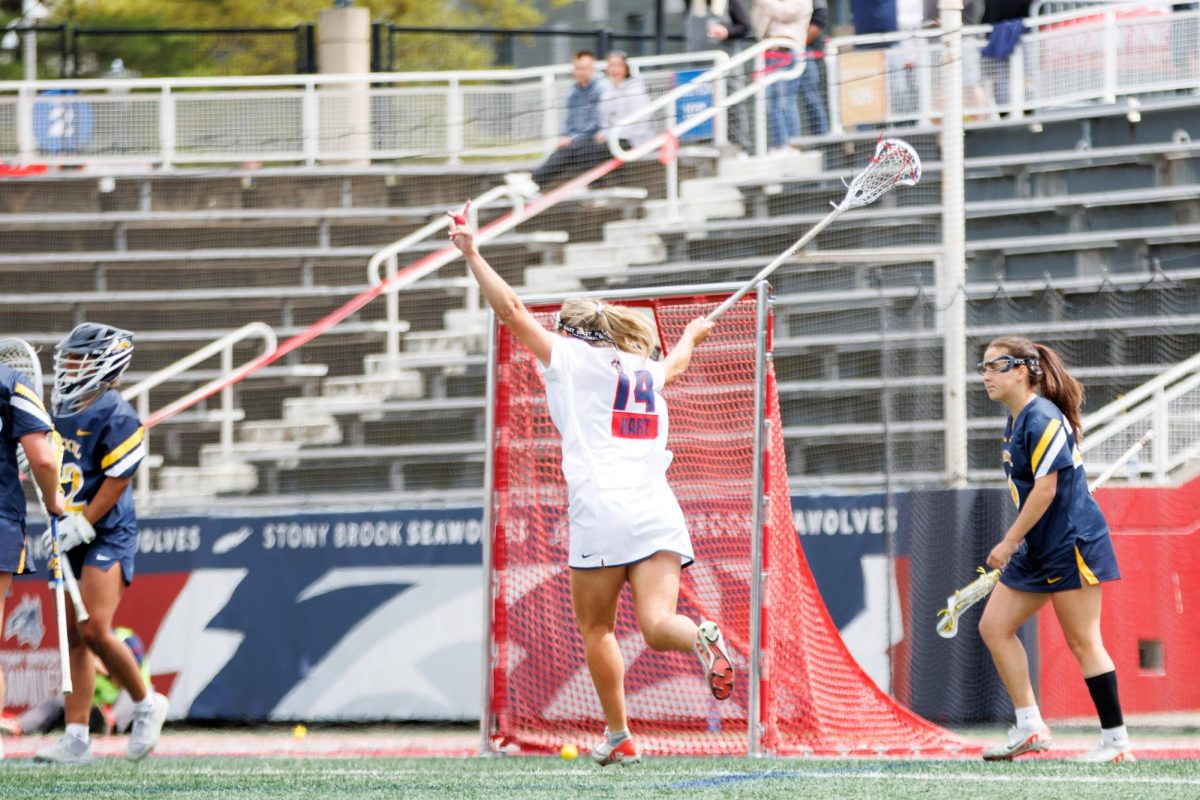
Korean reality show “Unexpected Business” swapped the usual Korean countryside backdrop for coastal California scenery in its third season, showcasing stories of immigration and local communities through the Korean diaspora.
The show stars actors Cha Tae-hyun and Zo In-sung temporarily assuming the roles of grocery store owners for 10 days with the help of their celebrity friends as part-timers. Unlike the first two seasons, the third forces the actors to venture beyond their comfort zones by filming at Asian Market — a supermarket in Marina, Calif., rather than their home country. Asian Market also doubled as a restaurant, allowing the celebrities to serve the customers traditional Korean dishes.
Despite some of the South Korean celebrities’ limited English-speaking abilities, they successfully communicate with customers, enriching the previous seasons’ themes of interpersonal connections and stories. From Korean immigrants who came to the United States for better economic opportunities to multiracial families who have lived in the U.S. for several generations, the interactions between the celebrities and customers showcase varying experiences with immigration, multicultural upbringings and the Korean diaspora.
The details of the customers’ stories were vastly different. Some customers immigrated as kids, resulting in their unfamiliarity with Korean mannerisms; often, they would incorrectly address people in Korean since they adopted English as their predominant language. Others went abroad alone to support their families in Korea in the 1960s and 1970s before direct flights from Korea to the U.S. existed.
Whether they immigrated out of necessity or to pursue a different life, many customers recognized that they had found their community, established a life in Marina and had no regrets about moving to the U.S.
Still, many immigrants missed using their native tongue and found comfort and nostalgia in visiting Asian Market to speak Korean with the employees. The Korean celebrities who were less fluent in English shared similar experiences as they expressed both excitement and relief when interacting with the Korean-speaking customers.
However, the level of Korean fluency ranged among the customers, often surprising the South Korean celebrities. A few customers spoke Korean with native proficiency that they developed from living in Korea. Some American-born Koreans effortlessly spoke Korean, while others lacked confidence or spoke a blend of English and Korean.
Many non-Korean customers shocked the Korean celebrities with their knowledge of basic Korean phrases and words resulting from the growing influence of Korean pop culture. Conversely, the Korean celebrities expressed their pride in seeing non-Koreans learning their language, witnessing the implications of the Korean Wave materialize.
Many themes and stories hold an air of familiarity to me as a first-generation Asian American. Whether it’s the struggle to confidently communicate in my parents’ native tongue, filial relationships between parents and children or immigrants brushing off their hardships as means of survival, the show resonates not only with Korean Americans but everyone familiar with immigration, living abroad, feeling homesick and building communities.
On the show, Asian Market and the restaurant provided a “third place,” offering a gathering spot away from home and work for neighbors and regulars to connect. In the restaurant, conversations would flow across tables between newfound friends congratulating a recently naturalized U.S. citizen to jokes about employing creative body language to overcome language barriers.
Similarly, New York City’s Chinatown neighborhood has served as a third place for myself and many others to gather and eat dim sum with family, hang out with friends and pick up Asian groceries.
Reflecting on the resilience of U.S. Chinatown neighborhoods following the rise of anti-Asian hate crimes, author and journalist Bonnie Tsui wrote, “Chinatown was born of diaspora but also of the human need to gather and make a home.” The idea of third places are omnipresent in neighborhoods where stores are mostly small businesses, such as local bakeries, hair salons, multigenerational restaurants and grocery stores that cater to the needs of the Asian American community.
Tsui likens Chinatown to “the most American story there is… The quintessentially American belief that if you work hard enough, you will earn something like success and belonging has always animated Chinatown.”
She ends her article with hope for neighborhoods that have witnessed anti-Asian hate, xenophobia and gentrification with the sentiment that “people in Chinatown have always known what it means to care for their neighbors.”
The spirit of neighborhood camaraderie is also present among the residents of Marina. Several Korean-run business owners in Marina extended their support to help the celebrities run Asian Market. These owners and regulars would also bring food or banchan — Korean side dishes — for the busy celebrities to enjoy cuisines that they were homesick for.
The value of looking after neighbors and the dedication of immigrants working hard to establish lives in America is exemplified by the owner of Asian Market, who dedicated 23 years to his business and never took a vacation until the show’s filming. Throughout the season, customers spoke highly of his hardworking and generous nature. He declined the government’s subsidized stimulus check during the COVID-19 pandemic, believing his business was doing well and others in financial need would benefit from the money more. Enduring years of 15-hour workdays contributed to building Asian Market’s loyal customer base and providing a sense of home within the local Korean community.
The third season of “Unexpected Business” offers a unique, slice-of-life perspective on reality television, allowing celebrities to interact casually with locals and seamlessly weave dialogues about immigration and hardship together. Despite the show being developed for Korean audiences, it tells an inherently American story, bridging audiences through heartwarmingly familiar life stories.

















